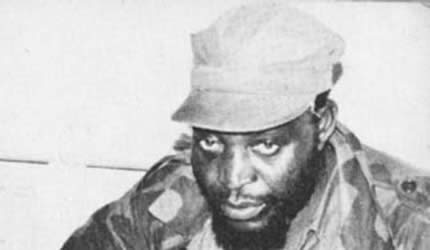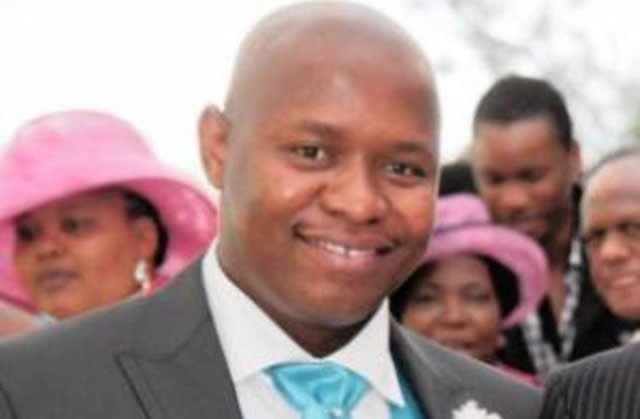Josiah Tongogara: In his own words

Lovemore Ranga Mataire The Reader
One of the things that the Josiah Magama Tongogara Legacy Foundation strives to do is to ensure that the late ZANU-PF’S Secretary for Defence and Commander of the ZANLA forces, General Josiah Tongogara’s legacy is immortalised. In its quest to immortalise the liberation icon’s invaluable contribution to the liberation of Zimbabwe, the Josiah Magama Tongogara Legacy Foundation recently published a book, “Tongogara – In His Own Words”, which for the first time gives an insight into the principles and values that shaped the late general’s evolution from being an ordinary Zimbabwean toiling under the oppressive colonial regime to one of the most illustrious commanders of ZANLA liberation forces.
The sheer magnitude of the collection of speeches by General Tongogara is exemplified by the foreword, which was penned by President Mugabe at the annual commemoration of the Zimbabwe Defence Forces at Army Headquarters in Harare in December 2012.
In the foreword, President Mugabe extolled the virtues of General Tongo as an unwavering revolutionary whose vision was to establish a free and democratic Zimbabwe devoid of discrimination and oppression on the basis of one’s skin colour.
“Tongo envisioned a Zimbabwe that is free and unshackled by settler colonial racism, a Zimbabwe of equals in all spheres of human effort. The land to be freed. The masses had to be liberated. The material circumstances of the masses had to transform for the better, through an array of social programmes,” reads part of President Mugabe’s foreword.
Aided by pictorial evidence, the book is unique in that it stands uncorrupted by any editorial indulgence as the first four chapters were written and typed during breaks during the Lancaster House negotiations that started in September 1979 and lasted until the agreement was signed on December 21, 1979 for the ceasefire and transition to independent Zimbabwe.
The last part of the book was an interview conducted by Zimbabwe News and published in the second half of 1978.
One thing stands out in reading this book. General Tongo was a “thinking” commander whose broad knowledge of Zimbabwe and what was at stake was instrumental in mobilising thousands of combatants into a cohesive military unit that pounded the better equipped colonial army into submission for talks.
Thus in the first chapter Gen Tongo gives a historical account of Zimbabwe including the actual landmass, its geography in terms of regions, its population, different tribes and the origins of the name Zimbabwe.
He also discounts the myth perpetrated by colonial historians that history started with the arrival of the white man, and only then did the black man come down from trees saying the ingenuity shown in the construction of the Great Zimbabwe monument demonstrates an advanced level of civilisation and a deeper knowledge of science and geometry.
“Over the years, white settler historians concocted false theories about the ruins, alleging that they must have been built by the Phoenicians, Arabs, Portuguese or Spanish travellers, etc… Conclusive evidence submitted by a team of archaeologist sent by the Royal Historical Association in Britain in 1905 to the effect that Zimbabwe was built by our forefathers, was suppressed for half a century.”
After giving a historical synopsis of Zimbabwe, General Tongo delves into his own childhood illuminating on one of the most intriguing coincidences.
Gen Tongo’s uncle used to be employed as a storekeeper in a shop owned by future and last colonial ruler of Rhodesia Ian Douglas Smith’s father. General Tongo recounts his visits to his uncle and described Ian Smith’s mother as kind because she used to give him sweets and biscuits.
It was only after completing his Standard 6 that the young Tongogara’s growing political consciousness began to manifest after being denied a secondary education entry because he had been black listed.
“While at Jobolinko I had my first serious encounter with the settler/colonial administration in the person of the Inspector of Schools, Mr BW. Lloyd. Although I had passed my Standard 6 examination at Jobolinko in the first division, he decided that I should not proceed to secondary school because I had what he described as subversive and dangerous views.”
He says his views were exposed during a debate in which he was accused of having taken a distinctly anti-European position.
It was that denial, which was very common among most African students, that eventually led him to illegally cross to Zambia after jumping onto a goods train. But again he failed to secure a place for further education and ended up staying with relatives and scrounging for survival.
One peculiar historical detail that often escapes most historians is the contribution of Zimbabweans in Zambia to the ultimate election victory of United National Independence Party led by Dr Kenneth Kaunda.
The young Tongo became the secretary for Chibolya branch of UNIP in Lusaka, while his cousin, Percy Ntini, was secretary for John Howard branch.
“Tongogara – In His Own Words” is an essential book not just in understanding the philosophy and vision of the guerilla fighter but in understanding the intricate development of the growing consciousness of indigenous Africans, which led thousands of them to join the armed struggle to end colonialism.










Comments